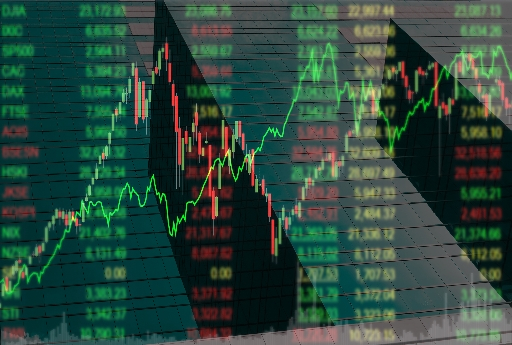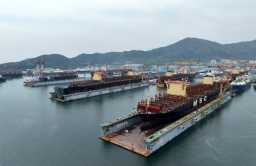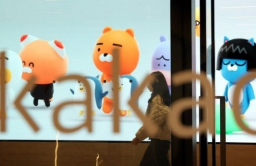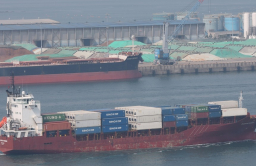-
KOSPI 2577.27 -2.21 -0.09%
-
KOSDAQ 722.52 -7.07 -0.97%
-
KOSPI200 341.49 +0.02 +0.01%
-
USD/KRW 1396 -2.00 0.14%
S.Korea's short-selling ban may face second extension; longest to date
Short selling
S.Korea's short-selling ban may face second extension; longest to date
By
Feb 01, 2021 (Gmt+09:00)
3
Min read
News+

South Korea’s financial authorities and the ruling Democratic Party are likely to extend the country's ban on short selling for another three months, marking the second straight extension since the ban was introduced last March in the wake of the global pandemic.
“Lifting the ban will be inevitable unless the short selling practice is abolished,” said a Democratic Party official. “We’re in discussions with financial authorities to resume short selling after the amendment to the Financial Investment Services and Capital Markets Act comes into effect,” the official explained.
The amendment, which aims to toughen penalties against illegal short selling practices, is set to take effect on Apr. 6. Government officials are likely to be wary of lifting the ban before the amendment is in place, considering growing concerns over illegal short selling practices.
The financial regulator has also drafted measures to expand the securities lending market to facilitate retail investors' access to short selling. The system will be established in June.
Last March, the Financial Services Commission (FSC) implemented a six-month ban on short selling between Mar. 16 to Sep. 15 to prevent a crash in the domestic stock market when the global pandemic sent financial markets tumbling. In August 2020, the ban was extended for another six months until March of this year.
The second extension is likely to be trimmed to three months, set to expire in June, considering the International Monetary Fund (IMF)’s recommendation to lift the ban and concerns over foreign capital outflow.
Some say that the ruling party has pushed to postpone lifting the ban to appease local retail investors, known as Ants, ahead of local elections in April to secure votes.
RULING PARTY CALLS FOR ACTION AGAINST FAKE NEWS

Retail investors believe short selling keeps share prices from rising.
Short selling is a stock market investment strategy whereby short sellers borrow shares and immediately sell them, betting that the price will fall before they buy back the shares and return them to the lender, taking the price difference, or margin, as profit. It is considered to be a risky but lucrative trading strategy, mostly applied by hedge funds.
The Democratic Party views retail investors’ misgivings toward short selling as excessive and has asked the FSC to take firm action against fake news, which exacerbates fear over short selling; and to highlight upcoming regulatory changes to improve short selling practices.
“Anxiety surrounding short selling is mainly amplified in online trading communities,” said Kim Byung-wook, the secretary of the National Assembly’s national policy committee, during a joint meeting between the government and political parties.
Retail investors have been calling for the abolishment of short selling amid fake news circulating that share prices will plunge if the ban is lifted, according to the Democratic Party.
"There are false rumors that naked short selling is allowed in Korea and that there is no system in place to monitor illegal short selling practices. Both of which are untrue," Kim said.
This is the third time South Korea has blocked short selling, following the global financial crisis in October 2008 and the European financial crisis in August 2011. It remains the longest ban on short selling in Korea to date.
Write to Dong-hun Lee, Hyeong-ju Oh and Mi-hyun Jo at leedh@hankyung.com
Danbee Lee edited this article.
More To Read
-
 Shipping & ShipbuildingHanwha Ocean shares sink after KDB's sale of 4.2% stake
Shipping & ShipbuildingHanwha Ocean shares sink after KDB's sale of 4.2% stakeApr 29, 2025 (Gmt+09:00)
-
Apr 25, 2025 (Gmt+09:00)
-
Apr 25, 2025 (Gmt+09:00)
-
 Business & PoliticsSeoul, Washington agree on July tariff deal framework in '2+2' trade talks
Business & PoliticsSeoul, Washington agree on July tariff deal framework in '2+2' trade talksApr 25, 2025 (Gmt+09:00)
-
Apr 24, 2025 (Gmt+09:00)





